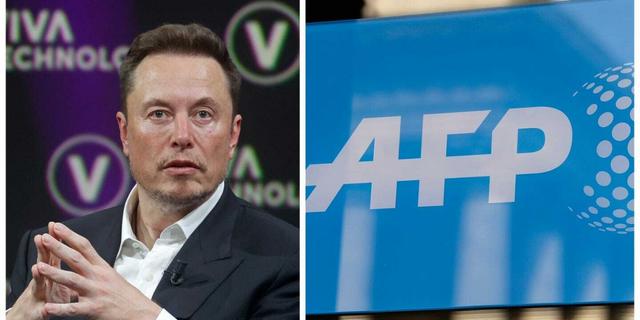Agence France-Presse (AFP), a prominent French news agency, has taken legal action against Elon Musk’s X, a social media platform, alleging that the platform has been uncooperative in discussing payments for the distribution of news content. The lawsuit was filed in Paris, with AFP seeking information from the platform, formerly known as Twitter, to calculate fair compensation for the sharing of its news articles.
The basis of the claim lies in a law implemented by the European Union in 2019, which mandates online platforms to engage in negotiations with publishers for remuneration concerning the dissemination of news content. AFP, a strong advocate for the adoption of neighboring rights for the press, is steadfast in its commitment to champion the cause.
News organizations have long contended that major platforms like X, Meta (formerly Facebook), and Google should share profits generated from hosting their content, especially considering the challenges they face with declining ad revenues. In response to such concerns, Canada recently passed a law requiring significant internet platforms to compensate news publishers for their content, following a similar model adopted by Australia in 2021.
Last year, Alphabet, the parent company of Google, reached an agreement with French publishers to pay for content featured in its search engine results. This came after France’s anti-trust watchdog imposed a fine of 500 million euros ($547 million) on the tech giant for failing to engage in negotiations with publishers.
Elon Musk, known for his critical stance towards traditional news organizations, responded to AFP’s lawsuit, describing it as “bizarre.” He further expressed his viewpoint on X, stating that the news agencies want X to pay them for directing traffic to their sites, where they make advertising revenue, while X does not receive any direct payment for such referrals.
The legal dispute between AFP and X reflects the ongoing tension between news publishers and social media platforms regarding fair compensation for the use of news content. As technology and media landscapes continue to evolve, these issues will likely remain at the forefront of discussions and legal battles.
AFP’s decision to file a lawsuit against Elon Musk’s social media platform, X, has garnered significant attention and sparked discussions about the relationship between news organizations and tech giants. The lawsuit centers around AFP’s claim that X has been uncooperative in engaging in discussions about payments for the distribution of news content on the platform. As one of the leading news agencies in the world, AFP relies on its content being disseminated across various platforms to reach a wider audience and generate revenue through advertising.
The European Union’s 2019 law, which obligates online platforms to negotiate fair compensation for news with publishers, forms the legal foundation for AFP’s claim. This law aims to address the concerns of news organizations struggling with declining ad revenues and seeking a more equitable relationship with major tech platforms. By pursuing this lawsuit, AFP seeks to ensure that X complies with the EU law and contributes its fair share to the news industry for the use of AFP’s content on its platform.
Elon Musk’s response to the lawsuit on X has drawn attention for its outspoken and critical tone towards traditional news organizations. Musk’s skepticism about the media is well-known, and he has often expressed his opinions on social media platforms. In his X post, he described AFP’s lawsuit as “bizarre” and argued that news organizations expect platforms like X to pay them for directing traffic to their sites, where they generate advertising revenue, while the platforms themselves don’t receive direct payment for such referrals.
The legal battle between AFP and X exemplifies the ongoing tension between news publishers and social media platforms over fair compensation for news content. The dispute also raises broader questions about the role of tech companies as intermediaries in the dissemination of news and the responsibility they bear for contributing to the sustainability of the journalism industry. As digital platforms continue to play a significant role in how people consume news, the outcome of this lawsuit could have far-reaching implications for the news industry’s business models and the relationship between publishers and tech giants.
Furthermore, this lawsuit comes in the context of increasing scrutiny on the influence and power of major tech companies. Governments and regulatory bodies around the world have been exploring ways to ensure fair competition, protect user privacy, and address concerns related to misinformation and the spread of harmful content on social media platforms. AFP’s legal action against X adds another layer to the complex landscape of tech industry regulation and highlights the challenges of balancing innovation, free speech, and responsible content distribution in the digital age.
As the legal proceedings unfold, industry stakeholders, journalists, and the public will closely observe the implications of this lawsuit on the future dynamics between news organizations and social media platforms. The outcome could shape how tech companies interact with news publishers and may potentially set precedents for similar cases worldwide. Ultimately, finding a fair and sustainable model that respects both the rights of news publishers and the interests of tech platforms will remain a critical task in an increasingly interconnected digital world.
Read More:











